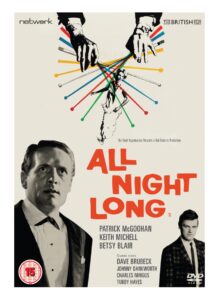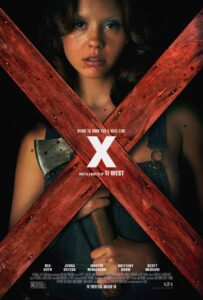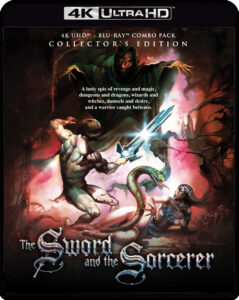Six years, and after several appearances in other franchise properties, Doctor Strange has its the sequel in Doctor Strange in The Multiverse of Madness (MOM).
Stephen Strange (Benedict Cumberbatch), master of the mystic arts, grappling with lost years dues to snapture (Hat tip to NPR’s Glenn Weldon for that) and lost loves as Christine Palmer (Rachel McAdams) marries another is drawn into a multi-universal threat rescuing a teenage, America Chavez (Xochitl Gomez), witchcraft summoned demons intent of capturing the young
woman for their master’s plan. Recognizing that this is witchcraft and not sorcery Strange seeks out Wanda Maximoff (Elizabeth Olsen) for assistance kicking off a chase across parallel universes, cameos from Marvel characters yet established in the MCU’s cannon and director’s Raimi’s long-time collaborator Bruce Campbell, with homages to their cult classic The Evil Dead, climaxing in CGI saturated battles but with a resolution that ultimately turns on seeing oneself as you truly are rather than how you think you are.
MOM is not the worst MVU films to play the silver screen, but neither is it the best. While heavy handed with some exposition it doesn’t fully its narrative momentum in the second act as did Eternals nor is it as light in character drama as The Incredible Hulk, but Strange’s emotional arc is flat, nearly absent, and with minor script changes that could have been corrected without signification plot deviations. Newcomer Xochitl Gomez does an impressive job holding her own in the presence of such acting talents as Cumberbatch, Olsen, and the film’s other Benedict, Wong, selling her character’s emotional truth without big expansive expressive displays
That said the film’s MVP actor is Elizabeth Olsen. In addition to playing variants of her character she excelled as the displaying depths for these individuals, giving a natural realism that penetrated the plots incredible nature and the CGI’s attempts to steal attention with spectacle. While Strange’s name is in the title the film is really her and I do wonder what viewers who have not seen WanaVision, whose theme composer Danny Elfman slipped into the score, made of Wanda’s principal motivation?
I did find the visual effects not quite on target, but I do not think it was primarily a failure of good rendering or models but rather the final composting left a disquieting disconnect to the varies elements harming the verisimilitude.
Overall, I would rank this MCU entry in the 3rd quarter with about half of the franchise better than and about a quarter not as good.
Doctor Strange in The Multiverse of Madness is currently playing theatrically.





